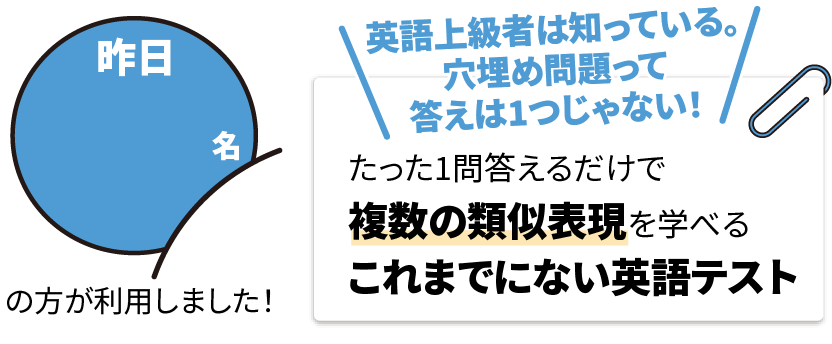みなさん、こんにちは
フルーツフルイングリッシュのネイティブ講師Simon先生がお届けする英語ブログで学ぶ使える英語表現をシリーズでお届けしています。
※Simon先生のシリーズ前回の記事「Simon先生の英語ブログで学ぶ使える英語表現ーStarting School 「学校の始まり」」を見逃した方はこちらからどうぞ!
今回のブログは、先生の息子さんのエピソードBoss Baby 「ボス・ベイビー」をお届けします。
Hello, this is Simon.
My son is 2 years old. Unfortunately, he has grown to love smartphones and tablets. We worry about him becoming addicted, but at the same time we don’t want to be the kind of parents who are always bossing him around and telling him not to do things. So, we just limit his viewing. If he eats all his dinner, we allow him a short play in the evening.
He likes YouTube and used to watch it while lying on the floor in a very relaxed manner. However, in recent weeks this has changed. Instead of lying down to watch the phone, he’ll place it on the floor and stand up to watch it. During this time he’ll jump, stomp, spin around, pretend to throw things, call out and also fall backwards onto his bum. This all happens while the rest of us are eating dinner.
After realizing it was becoming a regular thing, one night I snuck over to him to check out what was getting him so excited. It turned out he was watching videos of Mario games and pretending to be the boss, as he fights the other characters. Clearly he sees himself as some kind of boss.
Then, just a couple of weeks ago, we came to find out that this performance of his is a great source of pride. My wife had a coworker over for dinner. We were all happily eating together, and after my son had finished his, instead of taking the smart phone into the living room to do his little dance, he placed it on the floor right beside our guest.
Then, he commenced putting on a boss performance for her, with extra vigor added to each stomp. Occasionally he would look up to make sure she was watching, and his facial expressions seem to say something like, “Yeah baby, check out my stomping action! I’m the big cheese!” Look who’s wearing the pants now!” Of course she praised him by clapping her hands as saying, “Sugoi!”
This nightly performance has been continuing and doesn’t look like it will be going away any time soon.
I’m hoping that it is just a phase, because if he still thinks that this kind of thing will impress the girls when he’s in his teens or older, he may end up being one disappointed young man, as it is Mario who always ends up winning Peach’s heart and calling the shots, not the head honcho at the end of each level.
ーそれでは、本文の中からピックアップした英語表現を見てみましょう!
“some kind of boss”
The term “boss” has become quite popular in street slang and pop culture. It is used to describe someone who is successful, respected, or influential in their field or community. It’s often associated with a sense of swagger, power, and success
(e.g. She handled that situation like a boss, staying calm and in control the whole time.)
I think my son sees himself having this kind of gravitas in the Mario world.
“bossing him around“
To “boss” someone “around” means giving them orders or commands in a bossy or authoritarian manner. It implies a sense of control or dominance over them
(e.g. In his new role, he needs to lead by example instead of just bossing his team around.)
“extra vigor”
The noun “vigor” in this case means enthusiasm. To do something “with vigor” means to do it with great enthusiasm (e.g. He fought his opponent with vigor, just managing to take the game.)
“the big cheese”
This expression means someone who is very important or influential
(e.g. He is a big cheese in the academic world, frequently publishing groundbreaking research.)
It seems my son imagines himself as the big cheese in the game, dominating the other characters like a boss.
“wearing the pants”
To “wear the pants” mean to be the dominant or authoritative figure in a relationship or situation
(e.g. In their household, she definitely wears the pants, making all the major decisions.)
“calling the shots”
This idiom means to be in charge and making the important decisions
(e.g. Despite being the youngest in the group, she’s the one calling the shots, organizing their activities and outings.)
“the head honcho“
This idiom is similar to “big cheese” and refers to the person in charge or the leader. It carries a sense of authority, influence, or importance
(e.g. Who is the head honcho around here?/He thinks he’s the head honcho, but his older brother is the one who holds the family together.)
See you next month!

Hello! My name is Simon.
I am from New Zealand, and have been living and teaching English in Japan since 1999.
My hobbies include movies, playing the guitar, gardening and hiking.
※このブログでは英語学習に役立つ情報アドバイスを提供していますが、本ブログで提供された情報及びアドバイスによって起きた問題に関しては一切、当方やライターに責任や義務は発生しません。
※ここでの情報や助言を参考に英文を書いたり下した判断は、すべて読者の責任において行ってください。ここに掲載されている記事内の主張等は、個人の見解であり当社の意見を代弁・代表するものではありません。








 (2 イイネ!が押されています)
(2 イイネ!が押されています)




























コメントする